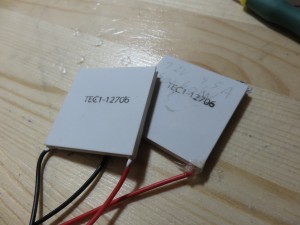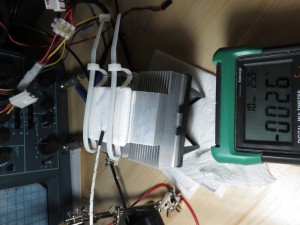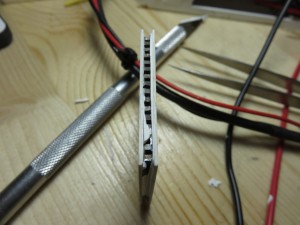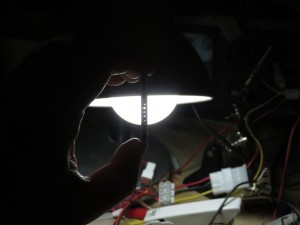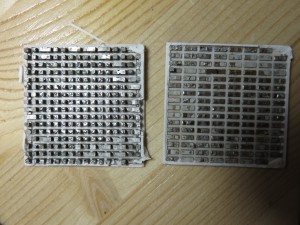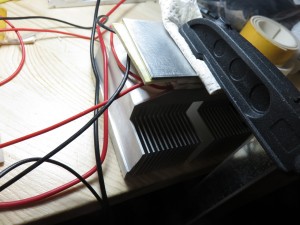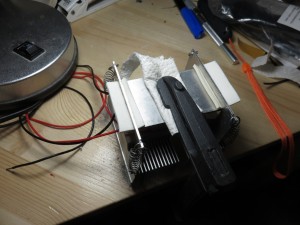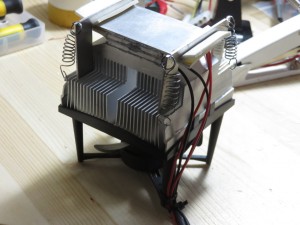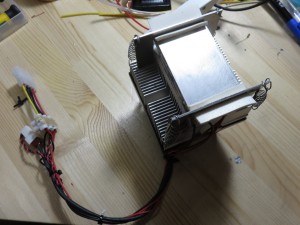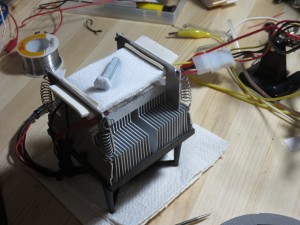The snow wavelet
The default wavelet used by the snow codec in ffmpeg is a symmetric biorthogonal compact 9/7 wavelet with rational coefficients with properties very similar to the famous biorthoginal daubechies 9/7 wavelet, it was found by bruteforce search with the goal of having a simple lifting implemenattion and having many vanishing moments or almost vanishing moments, the daubechies wavelet has (4,4) our wavelet has (4,2) vanishing moments
The lifting coefficients are:
| dau97 | snow |
|---|---|
| -0.443506852 | -15/32 |
| -0.882911075 | -4/5 |
| 0.052980118 | 1/16 |
| 1.586134342 | 3/2 |
The resulting wavelet and scaling functions look like:

One thing which is still annoying is the 4/5, while this can be approximated pretty well by a multiplication and a shift right but this tends to overflow so something like
x += x+x; x += x>>4; x += x>>8; x >>= 2;
is needed, this one only differs from 4/5 by a factor of ~0.00001, alternatively the 4/5 can be merged into the unquantization step so that
\ | /|\ | /|\ | /|\ | /|\ \|/ | \|/ | \|/ | \|/ | + | + | + | + | -15/32 /|\ | /|\ | /|\ | /|\ | / | \|/ | \|/ | \|/ | \|/ | + | + | + | + -4/5 \ | /|\ | /|\ | /|\ | /|\ \|/ | \|/ | \|/ | \|/ | + | + | + | + | +1/16 /|\ | /|\ | /|\ | /|\ | / | \|/ | \|/ | \|/ | \|/ | + | + | + | + +3/2 is changed to \ | /|\ | /|\ | /|\ | /|\ \|/ | \|/ | \|/ | \|/ | + | + | + | + | -3/8 /|\ | /|\ | /|\ | /|\ | / | \|/ | \|/ | \|/ | \|/ (| + (| + (| + (| + -1 \ + /|\ + /|\ + /|\ + /|\ +1/4 \|/ | \|/ | \|/ | \|/ | + | + | + | + | +1/16 /|\ | /|\ | /|\ | /|\ | / | \|/ | \|/ | \|/ | \|/ | + | + | + | + +3/2
Now lets compare quality between the snow and daubechies 9/7 wavelets, this comparission has been done with JasPer with this change and tinypsnr (from ffmpeg) The used test image was the 256×256 lena grayscale image
| Daubechies 9/7 wavelet | Snows 9/7 wavelet | ||||||||||||||||||||||||||||
|---|---|---|---|---|---|---|---|---|---|---|---|---|---|---|---|---|---|---|---|---|---|---|---|---|---|---|---|---|---|
|
|
